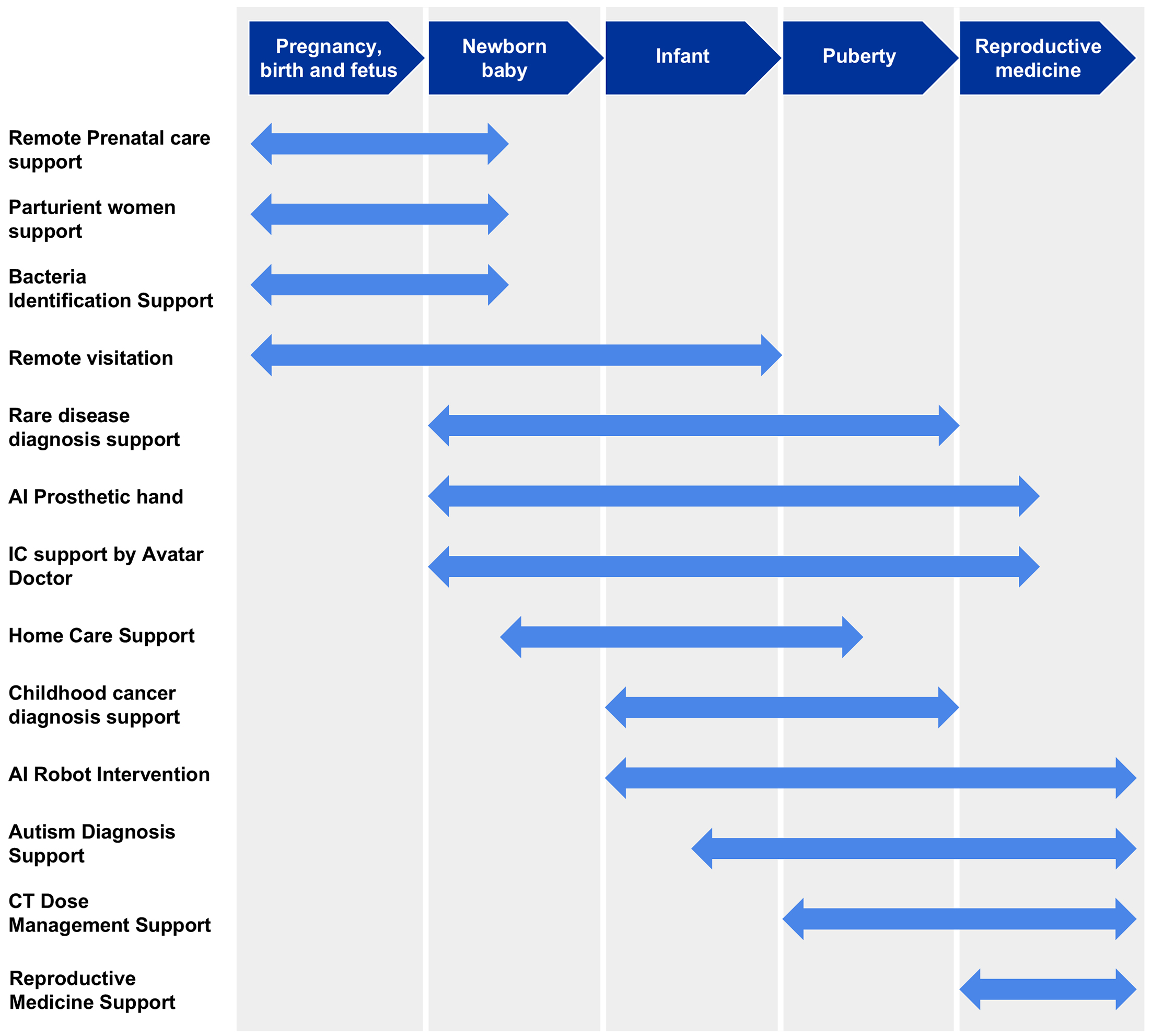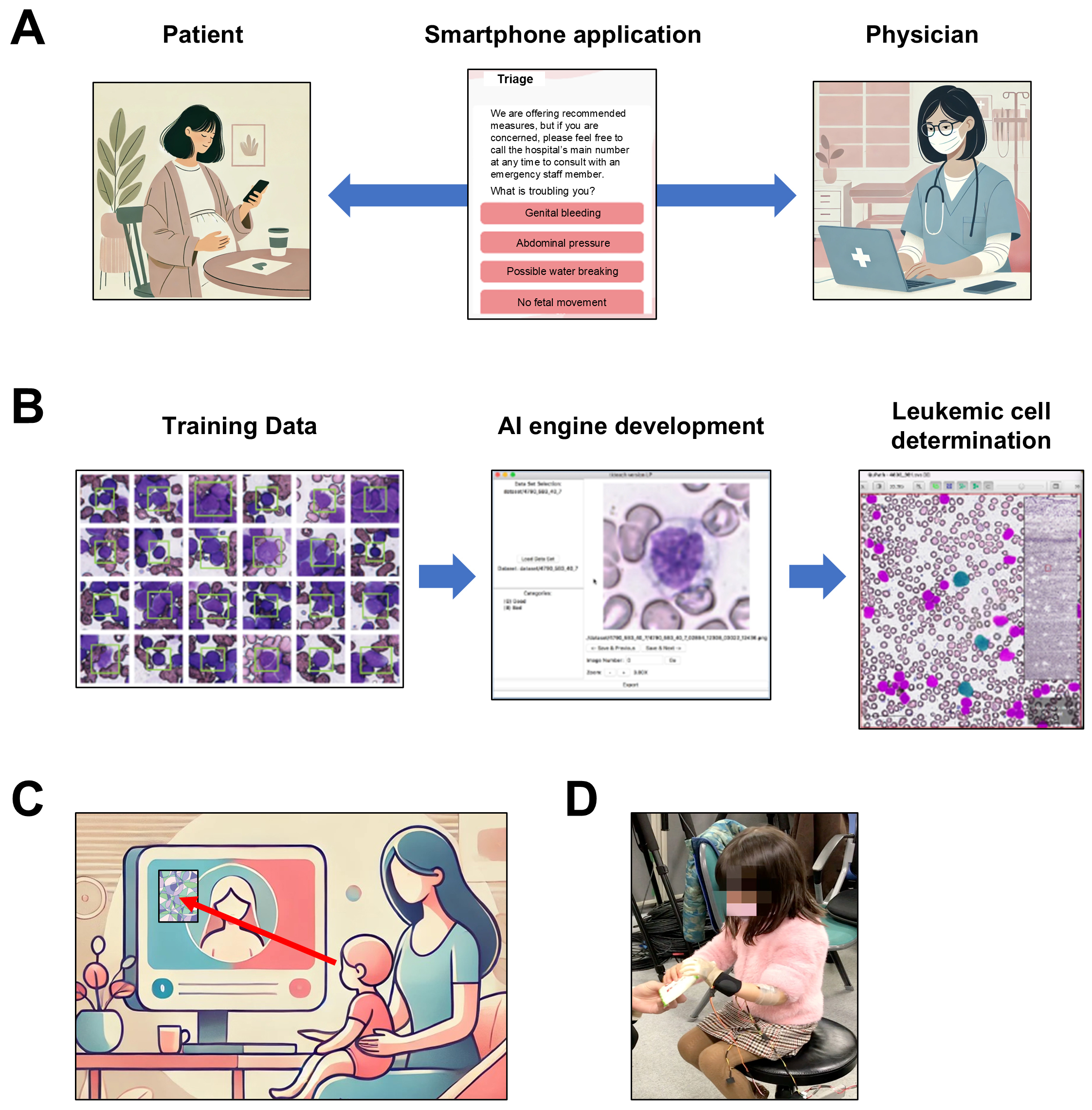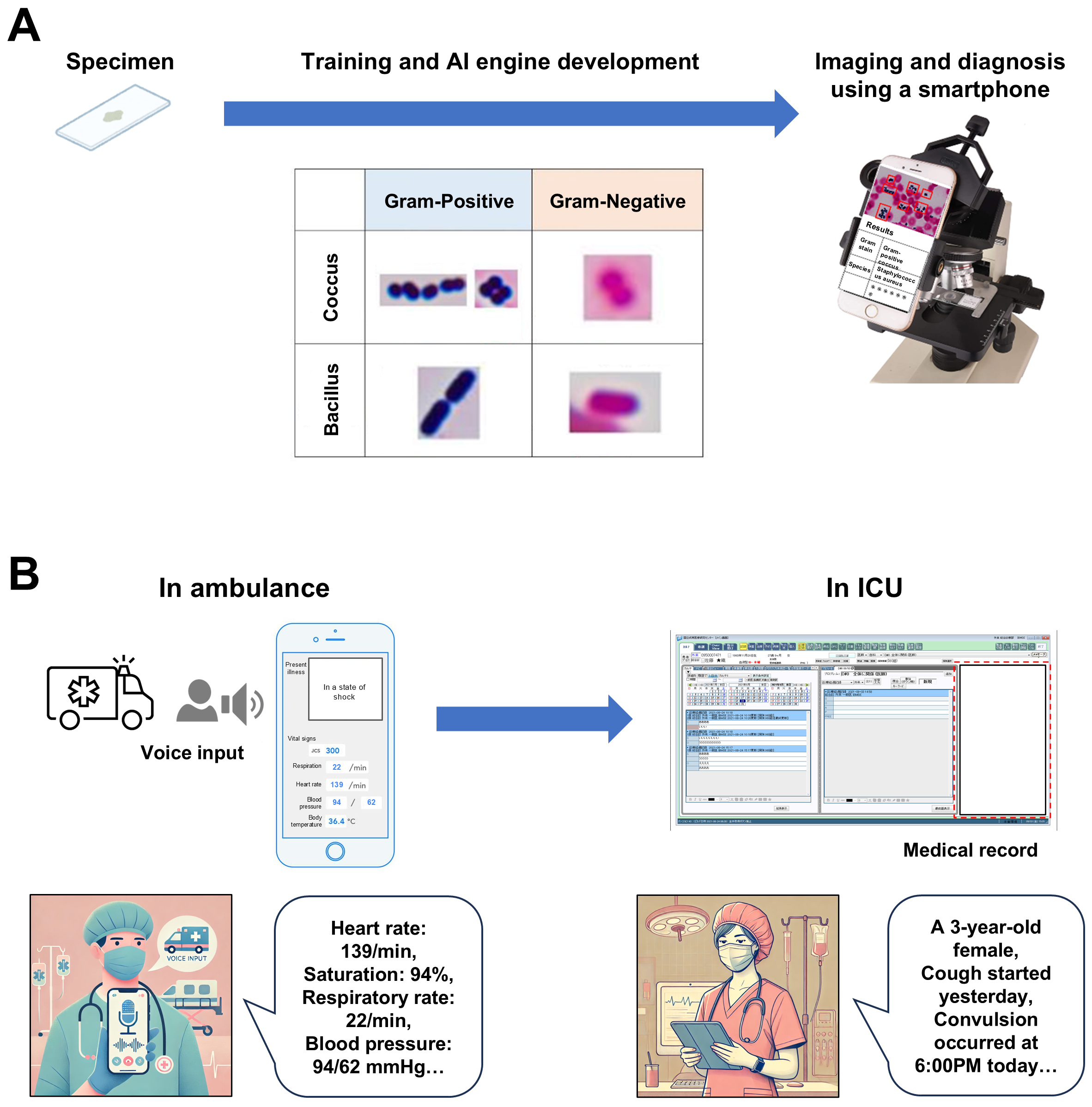Figure 1. AI hospital project at NCCHD
NCCHD has been advancing the development and social implementation of an advanced diagnostic and treatment system based on an AI hospital under the Cross-Ministerial Strategic Innovation Promotion Program, a Japanese national project. We have been developing AI systems across a broad spectrum, from pregnancy and childbirth to infancy and adolescence, and are extending them into adult medicine, including reproductive medicine. AI, artificial intelligence; IC, informed consent; CT, computed tomography.
From: Innovative Artificial Intelligence System in the Children’s Hospital in Japan

Figure 2. Development of AI-based systems for children’s and women’s health and medicine
A. AI in Obstetrics
The first step is to develop an AI-based prenatal checkup support system. All pregnant women who visit our hospital will be asked to download a remote prenatal checkup system application. With this application, pregnant women can make appointments for remote prenatal checkups. Doctors can review symptoms and other information pregnant women enter in advance, enabling remote prenatal checkups via PC or smartphone. This system has been exceptionally well received by pregnant women with children, for whom a hospital visit is inconvenient, as well as by pregnant women with busy work schedules who find it challenging to take time off, and those who wish to have a checkup during their workday without visiting the hospital. This system is expected to be used for remote prenatal care in underserved or remote areas that lack obstetricians. In addition, we are developing a triage system where pregnant women can input their concerns and receive AI-based recommendations. The AI assesses the urgency of the situation, advising whether to contact a hospital or monitor the situation from home. We plan to implement the triage system as an additional feature in the remote prenatal checkup system.
B. Diagnostic support system for pediatric cancer
I want to shift the focus from obstetrics to pediatric cancer. We have developed an AI diagnostic support system for pediatric leukemia bone marrow smears. Diagnosing leukemia is a complex and time-consuming task for specialists analyzing blood cells under a microscope. Our AI, trained on 100,000 annotated cell images, can detect blasts (abnormal cells) in a bone marrow smear with an accuracy of 94%. The AI can analyze 100 cells in approximately 10 s. This system provides objective, reliable, and efficient diagnostic support for childhood leukemia. We plan to conduct international clinical trials and develop the system as a certified medical device.
C. Eye gaze finder
We are developing an AI-based system to support the diagnosis of Autism Spectrum Disorder (ASD) using eye-tracking. Previous studies reported that children with ASD prefer geometric patterns over human faces. Using eye gaze measurements in 2-year-olds, our AI achieved 81% sensitivity and 85% specificity in ASD diagnosis. This system can identify ASD in 2-year-olds who are otherwise difficult to diagnose. Children identified by this system at age 2 were confirmed to have ASD by specialists at age 5. Thus, this system enables early diagnosis and intervention, potentially mitigating ASD symptoms.
D. AI-assisted prosthetic hand
We are developing an AI-assisted prosthetic hand for children facing difficulties using traditional myoelectric prostheses. Conventional myoelectric devices often require extensive rehabilitation, which can be cumbersome and consistently unsuccessful. Our AI prosthesis adapts to the patient’s unique muscle signals, enabling more intuitive and immediate prosthetic hand control. Informed consent for publication in the trial was obtained after thoroughly explaining the study to the surrogate (parents or legal guardians).
This figure is reproduced from Takagi T., 'Figure 2C. A Case of Congenital Hand Deformity,' A New Hand: The Present and Future of Prosthetic Hands, published in Orthopedics and Traumatology, Vol. 67, No. 12, 2024, pp. 1211–1217, with permission from Kanehara & Co., Ltd.
From: Innovative Artificial Intelligence System in the Children’s Hospital in Japan

Figure 3. AI system for bacterial identification and pediatric emergency medicine
A. Bacterial identification support system
NCCHD developed an AI system to diagnose bacterial species from blood cultures. Using Gram staining―a standard test that differentiates bacteria by their morphology and color under a microscope―our AI achieved an accuracy of 97% in Gram stain classification and 88% in bacterial species identification. This system can be remotely used by attaching a smartphone to the microscope via a specialized attachment.
B. Automated medical record system using the AI Voice technology
Voice input is automatically captured on a smartphone or tablet and displayed on the screen as text. This voice record can then be transferred to the EMR via a QR code, automatically integrated into the database. This system facilitates accurate and timely record-keeping, particularly in high-pressure environments, such as ambulances and intensive care units. These corrections maintain the scientific and professional tone of the original text while ensuring clarity and accuracy.
From: Innovative Artificial Intelligence System in the Children’s Hospital in Japan



